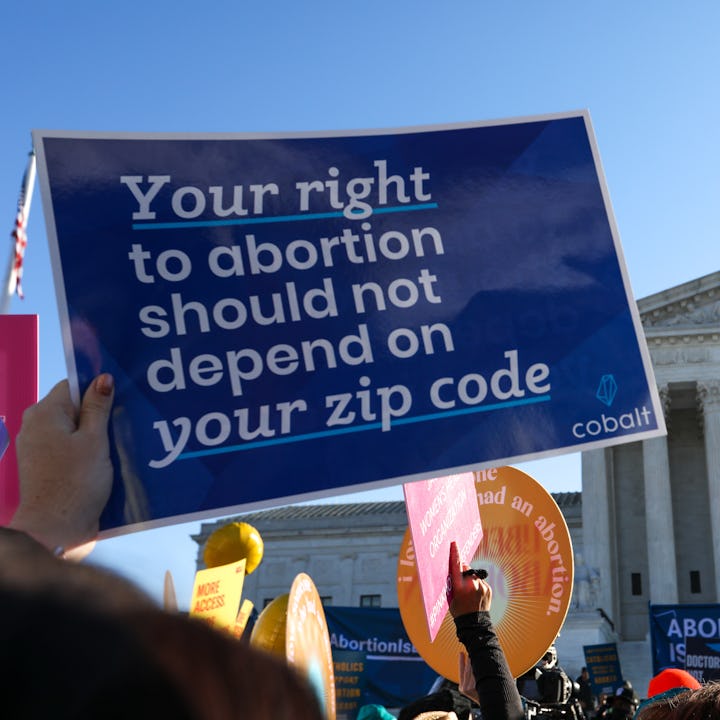Oklahoma Governor Kevin Stitt Signed A Law That Makes Performing An Abortion Illegal
The bill makes performing an abortion, except in the case to save the life of the mother, a crime punishable by up to 10 years in prison.

Today in “is-it-too-early-to-start-drinking?” Oklahoma Governor Kevin Stitt just signed a bill into law that makes performing an abortion a felony that is punishable by up to 10 years in prison. The law is the latest in an onslaught of Republican-led legislation aimed to strip back abortion rights to the a pre-Roe v. Wade era.
“We want to outlaw abortion in the state of Oklahoma,” Governor Stitt said during a signing ceremony for the bill, as other anti-abortion lawmakers, clergy, and students stood beside him. “I promised Oklahomans that I would sign every pro-life bill that hits my desk, and that’s what we’re doing here today.”
The bill, which already has a host of activists and reproductive justice organizations up in arms, is set to take effect 90 days after signing. Once the bill goes into effect, anyone convicted of performing an abortion would face a $100,000 fine and up to 10 years in prison.
The bill allows for an abortion only in the event that it is a life-saving procedure for the mother. This does not include rape or incest. The language of the bill also limits “life-saving” to physical reasons, which eliminates the ability to correctly argue that abortions can save the mother’s life long before it is a physically dangerous situation for the mother, or to argue for a mother’s mental health.
Even though abortion advocates are confident the bill is unconstitutional, the Supreme Court’s decision to uphold other restrictive abortion laws, Texas’ SB 8, has many rightfully worried about the general state of reproductive justice.
“The U.S. Supreme Court’s failure to stop Texas from nullifying the constitutional right to abortion has emboldened other states to do the same,” Nancy Northup, president and CEO of the New York-based Center for Reproductive Rights, said in a statement. “We’ve sued the state of Oklahoma ten times in the last decade to protect abortion access and we will challenge this law as well to stop this travesty from ever taking effect.”
The Texas abortion ban outlaws the procedure any time after six weeks of pregnancy and makes no exceptions for rape or incest. It turns private citizens into bounty hunters, as any citizen who narcs on someone trying to get an abortion and successfully brings forth a lawsuit is awarded $10,000.
Last December, the federal Supreme Court heard arguments in Dobbs v. Jackson Women’s Health Organization, a case that explicitly requests the Court to overrule Roe v. Wade, and six of the seven judges seemed on board with the idea. In a post-Dobbs world, restrictive abortion bans like Oklahoma’s would be perfectly legal.
If it feels like it doesn’t get more dystopian than this, bad news. Last month, Oklahoma’s House passed a bill that outright bans abortion in the state, aka a “trigger ban,” moving it to the desk of Gov. Stitt. He has indicated he will sign it.
"We’re going to sign every piece of pro-life legislation that hits our desk," Stitt said. "We want it clear that we want to choose life in Oklahoma. We don’t want to allow abortions in the state of Oklahoma,” said Gov. Stitt.
If you can, donate time or financial resources to local organizations. Educate yourself on the issues and contact your representatives. As it stands, the Supreme Court is on track to overrule Roe v. Wade come June.